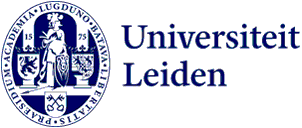
A quick call with Manon Osseweijer about the Leiden Research Support Network
The rules of play for researchers are becoming increasingly complex. This makes it essential that they receive the best possible support with challenges such as complicated grant procedures or strict privacy and ethics requirements. Leiden’s research support professionals have a network in which they share their knowledge and experience. ‘Then you can provide the best possible support without having to reinvent the wheel each time,’ says community manager Manon Osseweijer.

Hi Manon! So what exactly does a research support professional do?
‘Each scientific study obviously begins with a good idea but then there are all sorts of practical steps you have to go through: applying for a grant, gaining ethical approval, managing and storing data and finally publishing the results, for example. The Leiden Research Support Network is made up of all the staff who provide support within this research cycle.’
Those are very different topics. How is the network structured?
‘At the moment the network comprises five university-wide communities: grant advice, financial project management, project management, data management and ethics. We are also working on clear points of contact for researchers via research support offices, both virtual and within faculties and institutes.’
You are the community manager of the Research Ethics community. What kind of issues do you deal with?
‘The University has to ethically review research projects in which humans or animals are directly involved, for example experiments or lab research. So there has to be a proper process for this at all the faculties. One example of what our community has worked on is developing a clear permission form for research participants. Everyone in our community is the secretary of the ethics committee of a certain faculty or institute. As a form like this isn’t really domain specific, you can help each other out. And why reinvent the wheel if colleagues from another faculty already have a good solution?’
Why is it so important that Leiden researchers have this network?
‘Because we do our best to ensure that all the processes relating to their research run as smoothly as possible. We do this by connecting people and collaborating as much as possible across institutions and faculties, for instance.’
And what does the network mean for the research support professionals themselves?
‘I like how our network is a cross-section of the whole University. It no longer matters that you belong to a certain faculty or unit: you really get to talk about what your work actually entails. And you get to know colleagues that you wouldn’t usually meet. I can imagine that as a research support professional, you can sometimes feel a bit alone, for instance because you are the only project manager or grant adviser at your faculty. That is just the way that we as a university are organised. But you meet your colleagues who are in the same line of work through our network, which is enormously motivating.’
One last question: is the network all work and no play?
‘Definitely not! You don’t just connect by looking at your work processes and working together but also by getting to know your colleagues better. We build on our network with events, webinars, knowledge sessions and the annual Research Support Conference, which will be at PLNT this year on 5 June. And not forgetting our fun get-togethers.’
The Leiden Research Support Network was created through the Leiden Research Support programme, which is improving the support for our researchers. If you are a research support professional and haven’t yet received any information from the network, send an email to lrs@bb.leidenuniv.nl.
Text: Evelien Flink
Banner: Unsplash/Khyati Trehan
A quick call with
There’s a lot happening at Leiden University. The websites fill with news on a daily basis. In ‘A quick call with’, we ask a member of staff to tell us more about a relevant and topical subject.
